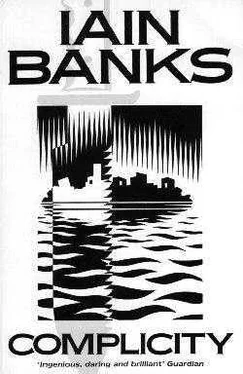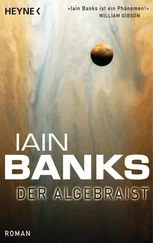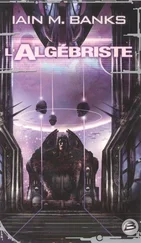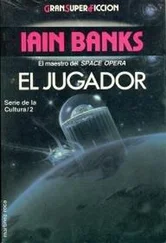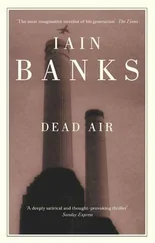They've given me back my lap-top. McDunn's idea. I try not to feel too pathetically grateful.
I check the files first; nothing missing. I give half a thought to going into Xerion to try the mushroom-cloud-riding trick Andy showed me, but it's only half a thought; instead I go straight into Despot .
I can't believe it's the same game. I feel my mouth open.
It's a wasteland. My kingdom is gone. The land is still there, some of the people are, and the capital city, designed in the shape giant crescents of buildings around two lakes, so that from the air it says «CC»… but something terrible seems to have happened. The city is crumbling, largely abandoned; aqueducts fallen, reservoirs cracked and dry, districts flooded, others burned down; the activity taking place within the city is about what you'd expect from town. The countryside has either become desert or marsh or returned to forest; huge areas are barren, and where there is any agriculture it's in the shape of tiny strip-fields around little villages deep in the woods or on the fringe of the waste. The ports are drowned or silted up, the roads and canals have fallen into disrepair or just disappeared altogether, the mines have caved in or been flooded, all the cities and towns have shrunk back, and all the temples — all my temples — are ruined, dark, abandoned. Bandits roam the land, foreign tribes raid the provinces, plagues are rife and the population is much smaller, less productive and individually shorter-lived.
The civilisation to the south that I had so many problems with seems to have retreated or relapsed as well, but that is the extent of the good news. The worst of it is there's no head man, no Despot , no me. I can look at all this but I can't do anything about it, not on this scale. To start playing again I'd have to trade this omniscient but omni-impotent view for that of… God knows, some tribal warrior, village elder, a mayor or a bandit chief.
I range over it all for a while, looking down, appalled. Somebody must have started it up just to look, then left it running while they checked out the other stuff, or maybe they tried to meddle, played with the game but couldn't control it… Unless this is what they wanted, what they designed; I guess a radical Green or Deep Ecologist would think it's a pretty cool result.
The battery alarm beeps. Might have known they wouldn't have charged the damn thing up properly.
I watch the unfolding of my once great realm until the machine senses too little power to work with, and closes itself down. The screen fades out on the overhead view of my capital; I watch my vainglorious "CC'-shaped city just dissolve quietly into darkness. They put the cell lights out a few minutes later.
I sleep on the narrow little metal cot with the lap-top cradled in my arms.
Three in the morning; dry, now, but cold. The police driver leaves the engine running and our exhaust smoke drifts into the air to one side on a chilly breeze. The Grassmarket is silent. The car isn't; the radio chirps now and again and I can't stop coughing.
The cop in the phone box waves, bang on three.
"Corner of West Port and Bread Street, soon," Andy says, then hangs up.
It's walking distance, but we take the car anyway, pulling up outside the Gas Rock Cafe bar. Nothing much here; office buildings, shops across the street. Another unmarked car is parked on Bread Street itself. The vans with the uniformed police are parked on Fountainbridge and the Grassmarket, and the various patrol vehicles are still cruising in the neighbourhood.
McDunn takes a walk around, then comes back to the car.
We have some coffee from a big thermos, sipping it black. It helps my cough a bit.
"Soon," McDunn says, contemplatively, looking into his plastic cup as if searching for coffee grounds to read.
"That's what he said," I tell him, clearing my throat.
"Hmm." McDunn leans forward to the two guys in the front. "Don't smoke, do you, lads?"
"No, sir."
"I'll go outside to be unhealthy, then."
"That's all right, sir."
"No; I want to stretch my legs anyway." He looks at me. "Colley; smoke?"
I cough again. "Can't make me any worse."
Handcuffed to the DI: I guess it's a kind of promotion. We light our fags and have a stroll, down past the pub, across the road to look in the window of a second-hand bookshop, then walk up past a video shop, a butcher's and a sandwich shop, all of them dark and quiet. A taxi rattles past, for-hire light on, heading into the Grassmarket. We stand leaning over the pedestrian barrier at the kerb. The tenement buildings behind look run-down and from here I can see the Victorian pile of the old Co-op building which closed just this year, and the "sixties-modern Goldberg's department store, shut down the year before.
Doesn't even smell too good right here; there's a wet-fish shop just behind us and a chip shop down the road but upwind; even the pavement looks greasy. Can't imagine they'll be bringing the Euro-heads of state down this neck of the woods for a black-pudding supper and a dirty video. Christ; that beano's only three weeks away now. Bet the Lothian police boys are enjoying this little outing when they've got all that to look forward to. I expected to be busy doing lots of Euro-articles for the paper in the run-up, right about now. Ah well.
"He had a good Army record, your friend," McDunn says after a while.
"So did Lieutenant Calley," I suggest.
The DI ruminates upon this. He studies the cone of his cigarette, smoked down almost to the filter now. "Do you think he's politically inspired, your friend? Looks it, up till now."
I stare up High Riggs as another taxi comes bumping down towards us. McDunn folds his cigarette neatly against the railing of the barrier we're leaning on.
"I don't think it's political," I tell McDunn. "I think it's moral."
The DI looks at me. "Moral, Cameron?" He sucks through his teeth.
"He's disillusioned," I say. "He used to have lots of illusions, and now he's got only one: that what he's doing will make any difference."
"Hmm."
We turn to go; I drop my fag to the greasy pavement and grind the butt out with my shoe, then look up. The lights of the cab turning out of High Riggs and rattling down West Port swing across behind us.
I stare. McDunn's saying something but I can't hear what it is. Funny noise in my ears. McDunn's tugging at my wrist with the handcuffs. "Cameron," I hear him say, somewhere in the distance. He says something else after that but I can't hear what it is; there's this weird roaring noise in my ears; high-pitched but roaring. "Cameron?" McDunn's saying, but it's still no good. I open my mouth. He taps me on the shoulder, then holds my elbow. Finally he brings his head round in front of me, putting his face between me and the fish shop. "Cameron?" he says. "You all right?"
I nod, then shake my head. I nod again, pointing forward, but when he looks he can't see anything; the shop is dark and the street lights don't light up the interior.
"Ha…" I begin. I try again. "Have you got a torch?" I ask him.
"A torch?" he says. "No; got my lighter. What is it?"
I nod my head at the fish-shop window again.
McDunn flicks his lighter. He peers in, face close to the glass. He shields his eyes with his other hand, taking my hand with it.
"Can't see anything," he says. "Fish shop, isn't it?" He glances up at the shop's sign.
I nod back towards the unmarked car. "Tell them to reverse up Lauriston Street and put full beam on. On here," I say.
McDunn looks narrow-eyed at me, then seems to see something in my face. He waves to the car. They put the window down and he tells them.
The car whines backward up Lauriston Street, lights on.
Full beam; we turn away from the glare and stand just to one side of the shop front.
Читать дальше
